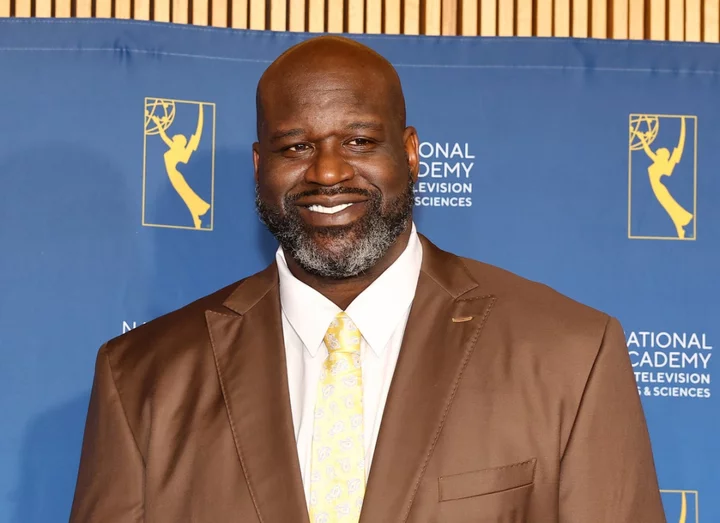
Shaquille O’Neal opens up about his 55-pound weight loss: ‘I couldn’t even walk up the stairs’
Shaquille O’Neal has spoken candidly about his fitness and health goals while opening up about his 55-pound weight loss. The former NBA star, 51, discussed his recent weight loss, and his “crazy goals” for himself, during an interview with Entertainment Tonight, where he revealed that he decided to change his lifestyle after realising he couldn’t “walk up the stairs”. “I was getting chubby and couldn’t even walk up the stairs. I didn’t like the way I looked in the mirror,” he explained. “I was like, ‘I’m gonna lose 20’ and then I was trying to lose 20.” According to O’Neal, who weighed 406 pounds at the start of his journey, he began by exercising, with the Los Angeles Lakers legend then changing his eating habits as well. He told the outlet that his goal is now to be “between 315 and 330 [pounds],” which he said is what he weighed when he helped lead the Miami Heat to their first NBA title in franchise history in 2006. In addition to losing more weight, the basketball star, who is 7ft 1in, also wants to achieve an “eight pack,” although he joked that he’s halfway to his goal. “I’ve got a five-pack now so I’ve got seven more packs to go because I want to take my shirt off on Instagram,” he said. This is not the first time that O’Neal has opened up about his fitness transformation, as he told the outlet in December that he was inspired to get healthy after a friend called him “fat”. “I got a couple people involved - it’s all about eating right. I got some blood work done, a friend of mine called me and said: ‘You’re fat,’ and she gave me this guy’s name, and he did some blood work, and you know, ‘cause I was the athlete - I wasn’t a salad eater. I won’t pay attention to any of that. I don’t care about none of that,” he recalled at the time. According to O’Neal, he also hadn’t known the difference between “a carb and a protein”. “At 50 years old I never knew. So, he was saying you can’t do this, you can’t do that, more vegetables, my iron’s low. And once I just started changing those certain things, it dropped,” he said. Read More Shaquille O’Neal says he follows ‘respectable nepotism’ philosophy when it comes to his children Shaquille O’Neal surprises family by paying for their washer and dryer at Home Depot
2023-09-02 02:49
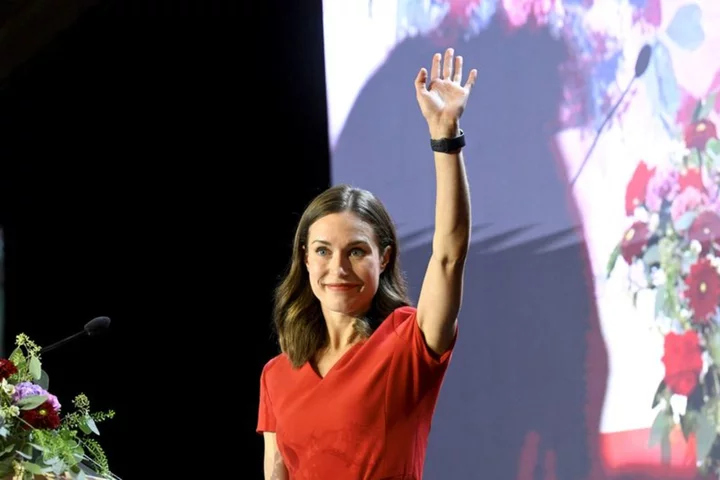
Finland's Marin, once the world's youngest premier, steps down as party leader
By Essi Lehto HELSINKI (Reuters) -Finland's former Prime Minister Sanna Marin, who narrowly lost an election in April, stepped down
2023-09-02 02:20
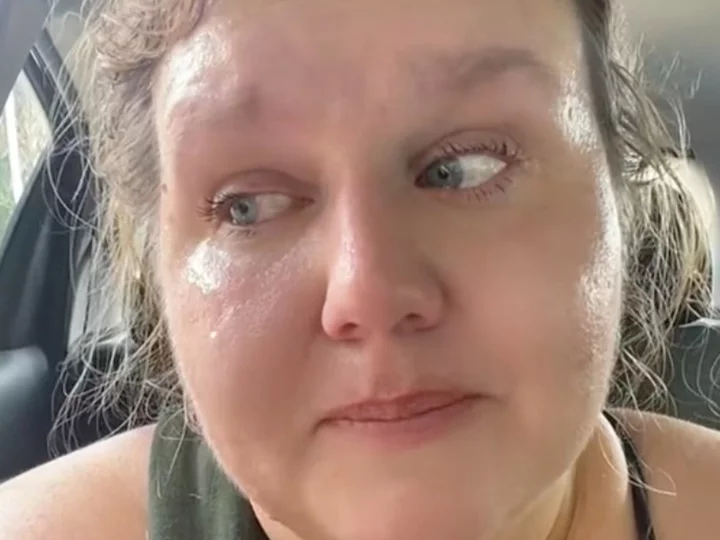
Woman shares heartfelt story of a stranger’s kind words to her at the gym
A woman shared an emotional story about a stranger’s kind words at the gym which brought her to tears. In her viral TikTok video, a gym-goer named Steph (@steph5468) said that after working out for almost “over two years” she has been “struggling” lately with her progress, especially after an incident a few weeks previously in which two men made some cruel remarks about her weight. She told viewers that one of them “coughed into his hand and said ogre,” which she admitted hurt her feelings. Ever since that interaction, Steph has been grappling with “deep-rooted insecurities” about her weight, which has been impacted by ongoing medical issues. To treat her ailments, she explained that she takes “steroids” which have caused “blood clots” among other problems. As she has tried to deal with her medical issues, Steph said that she was, in turn, “neglecting” herself. When a man with “tattoos all over” approached her as she left the gym, she told viewers that she was bracing herself for what she thought was another bully. As a self-proclaimed overthinker, Steph remarked, “There are a lot of thoughts going through your head being a bigger woman in the gym because there’s all sorts of ages there, different body types, like super fit, not fit, and it kind of messes with your head.” What he ended up saying to her was not at all what she expected. She recounted: “He goes, ‘I’ve seen you in here every week, almost every day. I see you in here every week and I’m proud of you.’” His words of encouragement hit Steph hard, motivating her to make a video about the kindness of this stranger. “You have no idea how much people that are going through something appreciate the kindness,” she said through tears. “He didn’t have to say it, he doesn’t even know what I’m going through.” She continued to say that nobody besides the management at the gym knew about her medical condition. “I’m just grateful for people like you guys that encourage us, people like me. Even if you’re not like bigger but you’re still, like, insecure about something.” “I was having a hard day today but you know what?” Steph told viewers. “That made my day.” @steph5468 #gymprogress #workputjourney #keepgoing #healingjourney ♬ original sound - X There was an outpour of support for Steph and the stranger’s act of kindness online, with one fitness coach commenting on the video: “Just having someone say they are proud of you can move mountains for so many of us.” “To be seen as we are is such a human need in each of us,” someone else remarked. Another wrote, “Little happiness snowballs. We all gotta throw them sometime.” Many have taken to writing encouraging comments on Steph’s personal account where she frequently posts about her ongoing fitness journey. Including comedian Paul Kim, who commented on a recent video of Steph’s, saying: “Crush them with your consistency and progress. You got this!!! We believe in you.” The Independent has contacted Steph for comment. Read More Influencer sparks debate after admitting she asks to see man’s bank account info on first date Fitness influencer Larissa Borges dies aged 33 after double cardiac arrest Schoolboy almost dies from swallowing magnets for TikTok challenge Woman shares honest review of New York City apartment TikTok mom slammed after making 5-year-old son run in 104 degree heat
2023-09-02 02:15
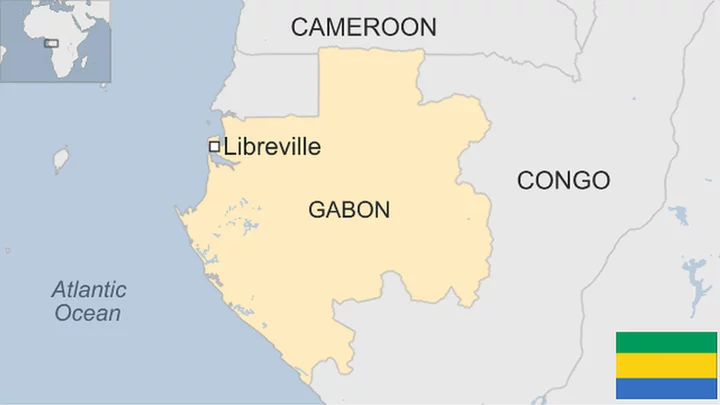
Gabon country profile
Provides an overview of Gabon, including key dates and facts about this west African country.
2023-09-01 23:56
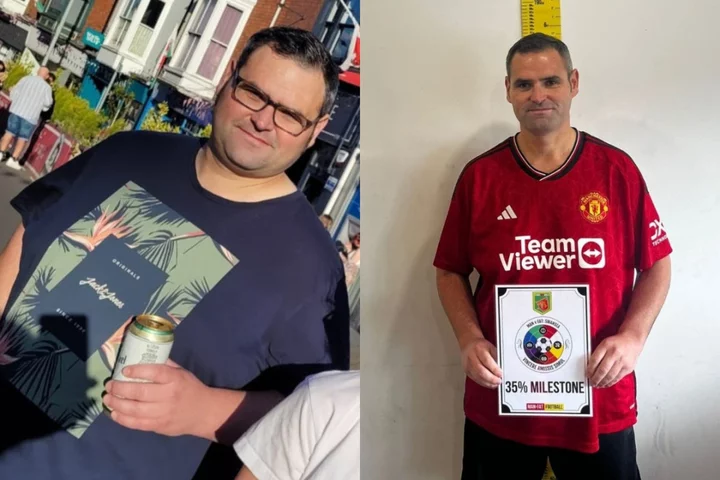
How did a man who dodged theme parks due to his weight lose nearly 60kg in under a year?
A man who “had anxiety all the time” because of his weight has lost more than 58.5kg after rediscovering his love of football and playing a weekly game of seven-a-side, and has now “gained a lot more confidence” and says his anxiety is “more controllable”. Kyle Bamford, 40, a scrap operative, who lives in Swansea, South Wales, with his wife Deborah, 41, and their three children, Caitlin, 18, Masie, 14, and Lola, 11, reached his heaviest weight in 2022, weighing around 161.5kg. At the time, he “suffered quite badly with depression”, “drank a lot”, comfort ate and even avoided socialising because he thought “people were judging (him)”. After coming across a friend’s social media post about Man V Fat, a weight loss programme that encourages overweight men to play football once a week, he had a “wake-up call” and decided to sign up. Since joining the club, in October 2022, Kyle has gone from a size XXXXXL to XL, lost 10 inches on his waist, and has lost 58.5kg – although, he still has to remind himself “that this is a big achievement”. Kyle admits that he still has “anxiety and nerves” but thinks it has got “a lot better” since losing weight. He has also noticed that the pain he was feeling “vanished overnight” and he can now do more things with his children – before, he was “too anxious” to go to theme parks with them as he was scared he could not fit on the rides. Kyle’s next goal is to get down to 99.9kg and he is considering playing football “competitively” once a week, as well as the weekly Man V Fat sessions. He told PA Real Life: “Before I lost weight, my wife said to me that when our kids grow up, I might not be able to do anything with them without getting out of breath. “I’d never go to theme parks, and I’d think of excuses because I was anxious of not fitting on the rides. “And now, I’ve got no problem with that. “My wife has also said that I’m more confident and she can notice that I’m happier too.” In early 2022, Kyle reached the heaviest weight he has ever been, weighing 161.5kg, with a BMI of 50.9 making him obese, and it began to take a toll on his mental health. He said: “I was just depressed and just had anxiety all the time. “I suffered quite badly with depression and I just drank a lot – eating was comforting more than anything. “I was quite anxious buying clothes and socialising, and I didn’t like seeing anyone from my past because I was smaller then. “I hated going to parties and things like that because I thought people were judging me.” In October 2022, one of his friends posted on Facebook about a weight loss programme called Man V Fat which involves overweight men playing football once a week. Kyle said: “I always enjoyed football and sports, and when I put the weight on, I fell out of love with it and lost interest in it. “When I saw my friend’s progress on Facebook, I couldn’t believe how much he had lost. “I signed up to Man V Fat when I was drunk and completely forgot about it. “When I got the call from them, I had a bit of anxiety and it was a bit of a shock but once I considered it, it felt like a wake-up call that I had to do something about my weight.” The following week, Kyle went to his first football session. He explained how the programme works: “At the start of the season, you register your weight and then you get weighed every week from then on. “You’re on a football team, and that gives you an incentive to lose weight because you play a 28-minute game of football, and if you have not lost weight, the other team gets points. “If you have lost weight, your team gets penalties.” After attending a few sessions, Kyle began to notice a difference in his weight and made small changes in his diet. He said: “My wife and I are very fussy, we like all the bad stuff really, to be honest. “But one thing I did do is cut out takeaways and pop, and I did see a big difference with just those two changes. “My guilty pleasure was on a weekend, after heavy drinking, I would order a takeaway, but I stopped doing that.” Kyle also started to track his calories on the MyFitnessPal app, and the more he lost, the more motivated he felt. He explained: “I stuck to MyFitnessPal religiously, and I think within the first month of joining Man V Fat, I was looking for excuses to quit. “I had all the negative thoughts go through my head, but I did stick at it. “I stepped on the scales a couple of weeks at a time, and I noticed my weight was dropping. “Something clicked in my head and I wanted to see how far I could go.” After 10 months of weekly football sessions and sticking to a calorie deficit, and now starting to go to the gym six times a week, Kyle has lost 58.5kg and is now 103.5kg. He said: “I always put myself down, and I have to remind myself that this is a big achievement. “I feel like I’ve gained a lot more confidence, but I still suffer with anxiety and nerves, but it’s a lot better and it’s a lot more controllable now. “I did suffer a lot of pain before I lost weight and it vanished overnight. “Now I go to parties and I definitely come out of my shell more easily.” Looking to the future, Kyle’s next goal is to get his weight down to double figures. He said: “I think 99.9kg is my goal – it will be hard but I think I can do it. “Now I’m back playing football I’m actually enjoying it again, and I’m looking to start playing competitively on a Saturday. “So at the age of 40, I think that is an achievement in itself because I feel like I can do it again.” Read More ‘I felt like a freak’: Woman’s bullying over skin blistering disorder Daniel Radcliffe credits his parents for helping him stay in shape What are the symptoms of prostate cancer and how common is it? ‘I felt like a freak’: Woman’s bullying over skin blistering disorder Daniel Radcliffe credits his parents for helping him stay in shape What are the symptoms of prostate cancer and how common is it?
2023-09-01 22:49
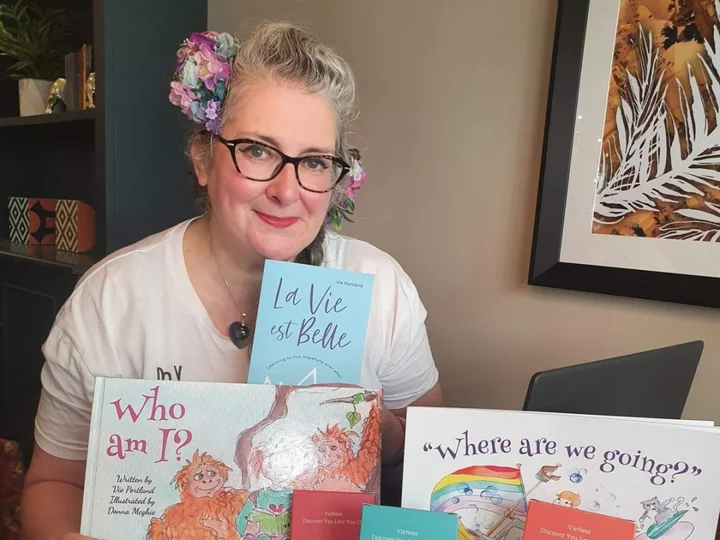
Woman bullied over skin blistering disorder writing books to stop other children ‘feeling like freaks’
A woman who was born with a rare inherited skin blistering disorder which caused her to get “bullied” and feel “like a freak” throughout her childhood and teenage years, as well as forcing her onto a soft food diet of “bananas and custard” for weeks at a time, now writes inclusive children’s books with a focus on disability to encourage “other children to grow up with confidence”. Vie Portland, a 52-year-old confidence coach, author and speaker from Winchester, was born with epidermolysis bullosa simplex generalised intermediate but was not formally diagnosed with the skin condition until she was 28. According to the NHS, epidermolysis bullosa (EB) is a rare inherited skin disorder that causes the skin to become very fragile, and any trauma or friction to the skin can cause painful blisters. Vie is yet to find a treatment that helps her condition, and her feet are regularly covered with huge internal blisters which feel like she has “stones under (her) skin.” Her condition even means that she cannot eat “anything acidic or too peppery” and often spends weeks eating “just bananas and custard”. She has also developed thoracic outlet syndrome, chronic bursitis, and often has spasms, because of walking with a limp to try to ease the pain. Now, Vie writes inclusive children’s books to raise awareness about living with a disability, because she grew up “afraid that there was no one else like (her)”, and hopes to write a book about someone with her condition next. Vie told PA Real Life: “So it feels like I’ve got stones under my skin all the time on my feet and it doesn’t matter how much you try to explain that to someone people just don’t get it. “Even things like if I meet friends for a drink in a lovely pub garden – I’ll be in agony because of walking on gravel and it takes so much energy out of me. “I can’t eat anything acidic or too peppery – sometimes I have to eat just bananas and custard for weeks.” Vie was born with the skin condition, saying: “I was born with no skin on my bottom and had some skin missing on my left foot. “The charity that works with people that have EB wasn’t around then – I spoke to someone recently from Debra, the charity, and they said if you looked at all the people on a double-decker bus, you’d expect to find at least one person with psoriasis. “But, you’d have to wait for over 700 buses before you met someone with EB.” As a child, Vie regularly had huge blisters all over her feet and the back of her heels. She explained: “I remember wearing jelly shoes one summer, and heat and friction are two of my triggers. “Throughout the day, blisters grew around the rubber shoes and I had to have the pair of shoes cut off my feet – it was excruciating.” When Vie was a teenager, she was very self-conscious of her condition, she explained: “I was in constant pain, and I struggled with all shoes and walking anywhere. “We’re always told not to pop blisters, but when you have EB they tell you to pop them because they get so big. “I didn’t know that at the time and it was just so painful. “People were noticing how I walk and I was embarrassed to show my feet – I didn’t have a normal childhood because of this. “Even something as simple as opening a bottle makes several layers of skin come off and cause me to have raw skin all over my hands, I was told this was weird by other people.” Doctors were baffled by Vie’s condition, over the years, she was told she had different types of eczema and even that she was allergic to her own sweat. But, at age 28, she was diagnosed with EB by a dermatologist in London. She said: “I just grew up believing that it was my fault and I was afraid that there was no one else like me.” “It all just made sense. “They even took pictures of my feet for a medical journal because it was so rare.” After getting her diagnosis, Vie began researching the charity DEBRA, which specialises in EB. She said: “I started finding out that there were people like me – it was amazing, growing up, I was bullied and felt like a freak.” Since then, Vie has sadly not been able to find a treatment that helps her condition. “There’s no cure for EB but things have moved on a lot over the past 20 years,” she said. “We have special types of dressings and creams which can help alleviate the pain.” On top of this, because Vie has been walking “unusually” for most of her life, she has developed thoracic outlet syndrome, chronic bursitis, and often has spasms. Vie said: “It can be frustrating at times because it just feels like no one will ever understand what it is like. “For most people, blisters are a bit painful, but it’s all right, but for me, it’s one of the worst pains in the world.” Now, Vie is focussing on raising awareness about living with a disability, and has recently written two inclusive children’s books called ‘Where Are We Going?’ and ‘Who Am I?’. She said: “I want other children to grow up with confidence and not to feel like a freak like me. “Children aren’t born with prejudice and I think it’s really important to teach them about all of our amazing cultures and worlds. “In my books, I don’t explicitly say the character is disabled until the discussion questions at the end – I want the character to be accepted and not defined by their disability. “I think people have more in common with each other than things that are different, and that’s a beautiful thing. “I’m hoping to write a book about someone with my condition – that’s my next plan.” Read More Charity boss speaks out over ‘traumatic’ encounter with royal aide Ukraine war’s heaviest fight rages in east - follow live Fraser Franks undergoing heart surgery – four years after ‘hidden’ condition cut short football career 4 viral TikTok make-up trends you’ll actually want to try Childhood Cancer Awareness Month: What are the warning signs that your child might have cancer?
2023-09-01 21:23
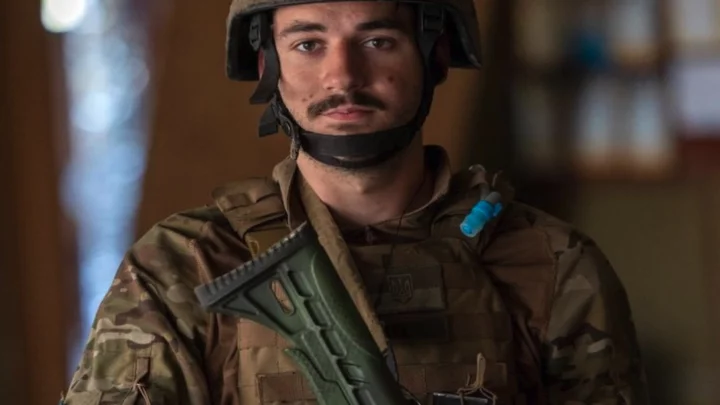
Samuel Newey: British volunteer killed in Ukraine a 'selfless warrior'
The family of Samuel Newey says they have been left devastated and heartbroken by his death.
2023-09-01 21:22

Dutch government to press ahead with Schiphol flight cap as airlines protest
By Toby Sterling AMSTERDAM (Reuters) -The Dutch government is set to press ahead with plans to cap the number of
2023-09-01 20:30
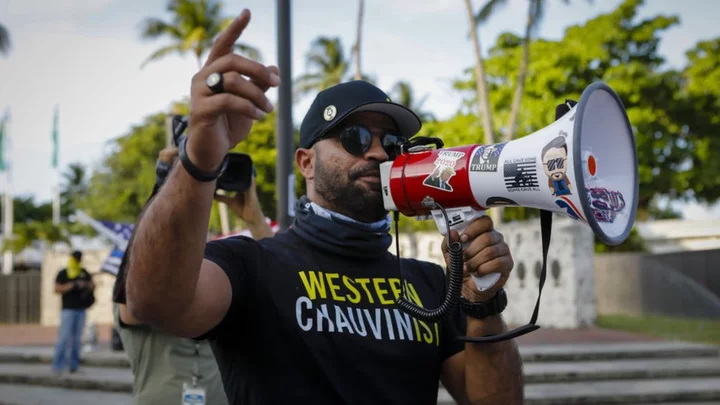
Proud Boys: From storming the Capitol for Trump to protesting drag shows
The group has moved from fighting left-wing activists to protesting outside drag shows.
2023-09-01 18:00
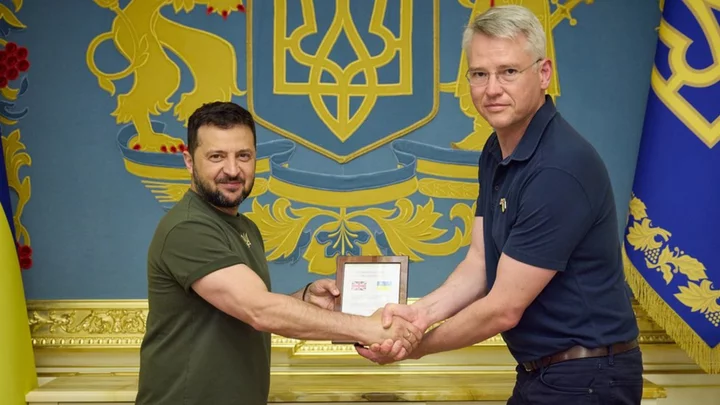
Ukraine war: UK arms giant BAE Systems sets up local business
The firm says the decision may allow it ultimately to produce light artillery inside the country.
2023-09-01 17:21
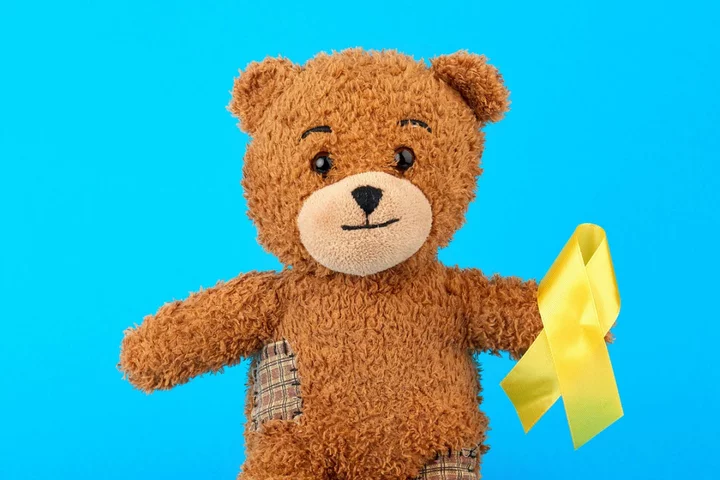
Childhood Cancer Awareness Month: What are the warning signs that your child might have cancer?
It’s heart-breaking to see a child that’s seriously ill, particularly when they’ve got cancer and might not survive. But children do get the disease – and it’s being highlighted during September’s Childhood Cancer Awareness Month. Fortunately, it’s not common. But every day in the UK, 10 families receive a cancer diagnosis for their child, teenager or young adult, and it’s the leading cause of death in children under 14, according to the charity Children With Cancer UK (CWCUK). However, Jeanette Hawkins, chief nurse at the Children’s Cancer and Leukaemia Group (funded by Young Lives vs Cancer), stresses that childhood cancer isn’t as rare as people might think, with a similar risk as diabetes, epilepsy and bacterial meningitis. “Use of the word rare for childhood cancer is a barrier to diagnosis as both GPs and parents therefore don’t consider it’s possible,” she explains. “Families, on average, have three to five GP visits before cancer is suspected. We need to reduce that by increasing awareness. Remember that childhood cancer is often a constellation of non-specific persistent symptoms, rather than a single ‘red flag’ that would alert a GP. “If you’re worried about your child keep going back.” Christiana Ogunbote, head of research at CWCUK, says childhood cancer accounts for less than 1% of all cancers in the UK, and explains there are 12 main categories of cancers affecting children, with the most common being leukaemia (30%), brain, central nervous system (CNS), intracranial tumours (26%) and lymphomas (11%). Ogunbote says cancer symptoms in children can vary widely depending on the cancer type and where it is in the body, but points out: “Often the individual symptoms of cancer can be similar to common childhood illnesses, so it can be hard to identify. “If a symptom progresses or doesn’t get better as quickly as expected, we would suggest getting it checked out by a medical professional. It’s useful for parents who know what’s ‘normal’ for their child to be aware of the signs and symptoms of cancer, as earlier diagnosis will support better outcomes for children and young people.” Here, Ogunbote outlines the symptoms of the three most common childhood cancers… 1. Leukaemia Symptoms of leukaemia in children and babies, which may be acute myeloid or acute lymphoblastic leukaemia (ALL), can include frequent and persistent infections, unusual bleeding and/or bruising, tiredness, paleness, breathlessness and, with ALL, coughing and anaemia. “Childhood leukaemia develops quickly,” says Ogunbote. “but it’s possible for some or all of these symptoms to be apparent.” She says a leukaemia diagnosis can be made from a blood test, which may reveal low numbers of normal white blood cells and large numbers of abnormal white blood cells. Further tests will then be done on a sample of bone marrow to confirm the diagnosis. 2. Brain and spinal tumours The symptoms of brain and spinal tumours (central nervous system tumours) vary between age groups, says Ogunbote, but symptoms in babies may include persistent/recurrent vomiting, balance/co-ordination/walking problems, abnormal eye movements or suspected loss of vision, behaviour change (particularly lethargy), fits or seizures (not with a fever), abnormal head position such as head tilt or stiff neck, and increasing head circumference. Children’s brain tumour symptoms are similar to symptoms in babies, but may also include a persistent/recurrent headache, blurred or double vision, fits or seizures, reduced consciousness and abnormal growth. Ogunbote says symptoms vary depending on the type and site of the tumour, and develop much more slowly with low grade tumours. But she stresses: “It’s important to remember that many of these symptoms are extremely common, and experiencing one by itself is rarely a sign of a brain tumour.” A CT or MRI scan will be done if a brain tumour is suspected, and if the scan confirms the diagnosis, further investigations will determine the type of tumour and best treatment. 3. Lymphoma Children may get a cancer of the lymphatic system known as either Hodgkin or non-Hodgkin lymphoma, and Ogunbote says symptoms of both include a persistent (lasting a few weeks) painless swelling of a single lymph gland, usually in the neck, or possibly in the armpit or groin with non-Hodgkin, a cough or breathlessness (if glands in the chest are affected), fevers, sweats, and weight loss. There may be itching with Hodgkin lymphoma, and with non-Hodgkin there may be tiredness, feeling full after a small meal, stomach pains (if abdominal lymph glands are affected), and sleep sweats. Diagnosis is confirmed by removing part or all of an affected lymph gland, usually under general anaesthetic, and doing a biopsy on it so the cells can be examined in a laboratory. Further tests, like x-rays, CT and MRI scans and blood tests, will also be carried out to determine the size and position of the lymphoma and whether it has spread. This is known as staging. “Many of the symptoms of lymphoma can also be symptoms of other illnesses, so this can make it difficult to diagnose,” explains Ogunbote. “Symptoms your child might experience depend on where the lymphoma is in their body, and symptoms vary from child to child, even if they have the same type of lymphoma.” Read More Charity boss speaks out over ‘traumatic’ encounter with royal aide Ukraine war’s heaviest fight rages in east - follow live 4 viral TikTok make-up trends you’ll actually want to try Daily aspirin dose could help prevent diabetes in older people – researchers Secondhand September: The best places to buy pre-loved fashion online
2023-09-01 16:25
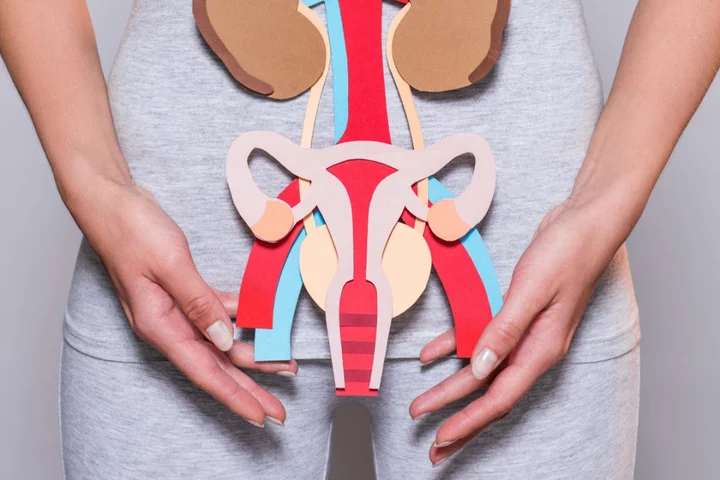
What are gynaecological cancers and how can you prevent them?
September is Gynaecological Cancer Awareness Month, which sees charities joining together to put the spotlight on the range of cancers that start in the female reproductive system. There are five main types of gynaecological cancer – cervical, ovarian, vaginal, vulvar and uterine (or womb) – plus fallopian tube cancer, although this is very rare. Around 22,000 women are diagnosed with a gynaecological cancer each year in the UK, of which 21 die every day, according to charity The Eve Appeal. However, some of these cases are preventable, and with the right treatment, many gynaecological cancers have high survival rates. Here, experts answer some key questions about the prevention and treatment of gynaecological cancers. What are the symptoms of gynaecological cancers? “The symptoms of gynaecological cancers can vary,” says gynaecologist Oudai Ali from New Victoria Hospital. “But some common signs to watch out for include abnormal vaginal bleeding, pelvic pain or discomfort, unusual vaginal discharge, new vulval lump or ulcer and changes in urinary or bowel habits.” If you’ve noticed any of these signs, follow the ‘if in doubt, check it out’ rule, Ali says: “It’s crucial for patients to consult their GP if they experience any of these symptoms, as early detection can significantly improve treatment outcomes.” Severe ongoing bloating and feeling full very quickly, unintentional weight loss and fatigue are also indications it’s a good idea to get things checked out. Are regular screenings important for gynaecological health? Routine screening programmes are not available for all types of gynaecological cancer. However, where they are available – such as cervical smear tests – attending screenings can be life-saving. “Regular screenings, such as smear tests and HPV (human papillomavirus) tests, are vital for the early detection of cervical cancer and can prevent it at its pre-cancer stage,” says Ali. “Additionally, it’s important for individuals to discuss family history and risk factors with their healthcare provider to determine which screenings are appropriate.” Research shows that cervical cancer risks are higher for people who don’t attend screenings. “Cervical cancer risk is estimated to be 1.7% among women in the UK who don’t attend screenings,” says Mr Andrew Pooley, consultant gynaecologist at New Victoria Hospital. “Other risk factors are related to a higher exposure to HPV, the use of the contraceptive pill for over 10 years, or a weak immune system.” Ali adds: “The age to start screening can vary depending on the type of cancer and a patient’s individual risk factors. Pap smears typically start around age 25.” For cancers where there isn’t a national screening programme, your GP can refer you for blood tests and scans if you are concerned about symptoms. Can gynaecological cancers be prevented? While not all gynaecological cancers can be prevented, there are steps you can take that in some cases may help reduce your risk. “Maintaining a healthy lifestyle, including a balanced diet, regular exercise, and avoiding tobacco, can help,” Ali says. “The HPV vaccine is a powerful tool in preventing certain gynaecological cancers. It protects against several strains of HPV that can lead to cervical, vaginal, and vulvar cancers. It’s recommended for both boys and girls, ideally before they become sexually active, to provide the greatest protection.” Some gynaecological cancers can have a hereditary component, too. “A family history of bowel, breast or ovarian cancer may increase the risk,” Ali explains, which is why it’s important to discuss family medical history at screenings. “They can assess the risk accurately and recommend appropriate screenings or genetic testing if necessary.” This said, anyone can potentially get cancer, so getting any symptoms checked as soon as possible is always key. What are the available treatment options for gynaecological cancers? Treatment options vary depending on the type and stage (from one to four) of cancer. “They may include surgery, chemotherapy, radiation therapy, hormone therapy, targeted therapy, or a combination of these treatments,” says Ali. “The choice of treatment is personalised to each patient’s specific diagnosis and medical history.” Survival rates for the main five gynaecological cancers when diagnosed at stage one range from 75%-95% according to Cancer Research, which further highlights the importance of early detection. New Victoria Hospital has launched its Community Champion Campaign, which will offer free scans and treatment to people across the UK for the sum of £125,000. To apply visit: newvictoria.co.uk/communitychampioninitiative. Read More Charity boss speaks out over ‘traumatic’ encounter with royal aide Ukraine war’s heaviest fight rages in east - follow live Alzheimer’s: How and when to talk to someone about their memory loss As Simon Cowell shares positive therapy experience, how can it help even if you aren’t in crisis? Project launched to bust myth that cancer is a ‘white person’s disease’
2023-09-01 14:22
